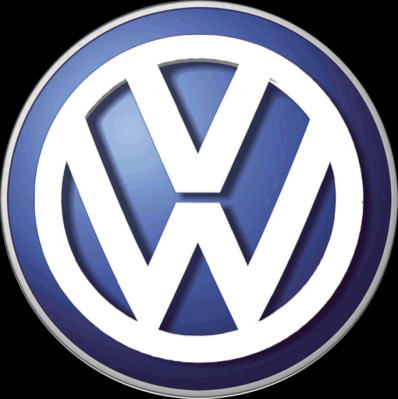Volkswagen Develops Driverless Car

Who gets the speeding ticket if a car is driving itself?
Volkswagen doesn't have the solution for that, but the company is currently testing a Temporary Auto Pilot (TAP) system that will allow a car to drive itself at speeds of up to 80 miles per hour on the highway. By bundling traditional automatic systems including cruise control and a lane monitoring system, Volkswagen's TAP maintains a safe distance between vehicles in front of and behind the driver and adjusts speed for curves, while also keeping the car within lane markers.
Additionally, the TAP system is said to work in stop-and-start conditions drivers experience in city traffic, making Volkswagen's engineering truly unique, if it works according to plan.
One conceivable scenario for its initial use might be in monotonous driving situations, e.g. in traffic jams or over sections of a driving route that are exceedingly speed-limited, said Prof. Dr. Jurgen Leohold, executive director of Volkswagen Group Research.
The German-based automaker has not said when the autopilot driving system would go into production or how much the elaborate system will cost.
Still, the development of an effective driverless system is monumental for the company, since some industry experts claim such fully automatic systems are the next big thing of the personal transportation future. Volkswagen's system, currently in testing, goes up to 80 mph and maintains control through a varying bundle of sensors placed strategically around the vehicle. But company officials say the driver will always be in control, in spite of the automation. They say the system is merely an extra safety advantage for drivers, like an extra set of eyes on the road.
The ambitious system is welll beyond the dream phase for Volkswagen, since it is being designed as production ready with components that are geared for the company's manufacturing assembly processes. Typically, when automakers design lofty technology in a production ready phase that means it could come to market within a few years.
Other automotive companies including BMW are testing similar semi-automatic or automatic driverless systems but neither is reported at the advanced development stage as Volkswagen.The company has been experimenting with a driverless car for some time. In 2005 VW revealed to automotive journalists a a Vokswagen Toureg they called Stanley. The VW prototype, which was not production ready, was a fully-automatic car that could drive at speeds of up to 150 mph. The prototype was developed initially to help Volkswagen engineers test their vehicles but it was so popular and effective that the company moved over the past several years into developing a production-ready system that would serve and benefit everyday drivers.
VW AIMS TO BECOME WORLD'S LARGEST AUTOMAKER
The news is yet another piece of ambitious activity for Volkswagen, aiming to become the largst automobile manufacturer in the world. The company is readying its first-ever U.S. manufacturing plant in Chattanooga, Tennessee. Volkswagen was the last holdout of the major global automakers to build vehicles on U.S. soil though it did so briefly in the 1970s at a small factory but it wasted no time becoming aggressive once the decision was made. The plant officially began producing cars at the facility in May and the $1 billion plant is expected to reach full production early next year, making 150,000 vehicles in Chattanooga.
The Volkswagen group has finally arrived as a local manufacturer in the United States, said Martin Winterkorn, CEO of Volkswagen.
The company had previously announced its goal of becoming the world's largest automaker in terms of sales and profit by 2018. Part of that plan was boosting sales in the United States over the course of a decade to 800,000 units per year - thus, the Chattanooga plant became an important part of that growth process, as are product developments like the TAP system.
© Copyright IBTimes 2024. All rights reserved.





















